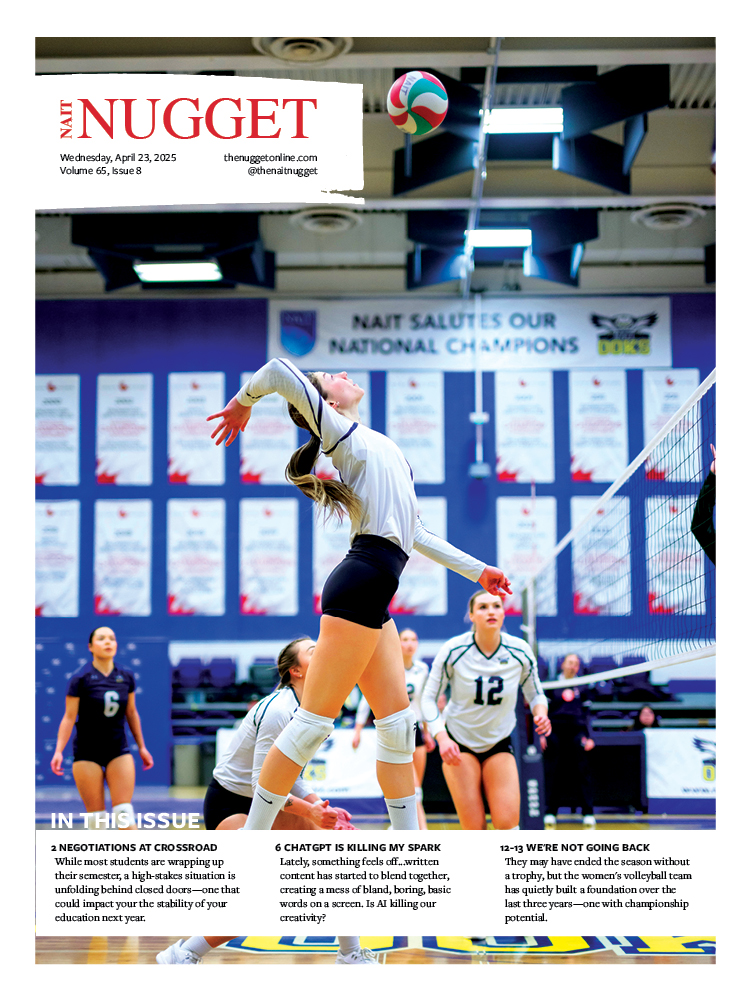By Stephanie Swensrude
I like learning about languages, even though I find it very challenging. I often get waves of motivation where I’ll go on Duolingo for four hours straight, but get discouraged when I realize French has over 20 tenses. I think humans don’t give themselves enough credit.
Success isn’t some revered, rarely-attainable thing. Success is inevitable with focus. If I study French every day for 20 minutes, I will improve. If I go on a jog every morning, I will be more fit. If I cook dinner every night, I will get better at cooking.
I hope you can now see that success is inevitable, if you put in focused time. Now that you see that, what will you do?
I was walking with my best friend when she expressed her frustration with the fact that she had such a hard time accomplishing anything. She had started a podcast in the last year and loved it so much. She felt as though this was her calling. I asked her what her goal was and she said, “I want to make a living from podcasts.” As I walked her through why that was a great dream but not a goal, she was stunned, because she had never thought about goals like this.
A goal should be S.M.A.R.T.
SPECIFIC – Taking my friend’s dream as an example, you can see that it isn’t specific. How much money does she need to make to “make a living”? Would she focus on one podcast, or would it be from multiple?
Goals should be specific because it helps narrow your focus. When you narrow your focus, you pare down and can really focus your energy on what matters most.
MEASURABLE – Again, you can’t really measure “making a living”. As another example, let’s say your goal was to get more followers on Instagram. Instead of just “more”, choose a number. When you do this, you’ll be able to clearly tell when you have achieved your goal. I told my friend to figure out her planned expenses and do the math to figure out how much she would need to make per year to stay afloat.
ATTAINABLE – This one was a little tricky for me. I am someone who believes that anything is attainable if you work hard enough (cheesy, I know! Bear with me). I now see attainable as something that doesn’t depend on another person. For example, the goal “get a promotion” isn’t very effective because it is dependent on a lot of other factors – other applicants, your boss, etc. Something like “gain the skills that will make me valuable to my company” is actually attainable.
REALISTIC – In the same vein as attainable this has to do with creating bite sized pieces that are doable that lead to something bigger that may seem impossible. For example, a goal to run a marathon tomorrow is not realistic, but a goal to run a marathon in a year is, depending on who you are. The smaller bite sized goal would be to run every day for 20 minutes.
TIME-SENSITIVE – This is my personal favourite because I work well under pressure. You have to set a deadline for yourself so that you don’t spend too much time putting things off.
For my friend’s goal, I asked her when she wanted to be making a living from podcasting. When she said five years, we explored what she’ll be doing four years from now, one year from now, six months from now, and six weeks from now.
So let’s take my friend’s goal. It went from “I want to make a living from my podcast” to “By 2025, I want to be making $40,000 a year from my podcast.”
Then we will further break it down into little goals that lead to the big one.
This sort of goal-setting can be very motivating because you are accomplishing little goals along the way. The momentum keeps you striving for the bigger one.
Finally, when you make little goals try to make it about the journey not the result.
“I want to lose 10 pounds by September” is a result based goal. However, “I will exercise every day for 20 minutes and cut out candy from my diet” is a journey based goal.
There is no bad way to start goal setting, the only bad way is to not. Statistics show writing your goals down increase the chances of them coming true by 42 per cent. So you have nothing to lose. Start writing, then refining and breaking them down into more S.M.A.R.T goals.






